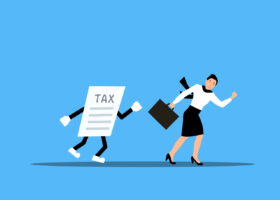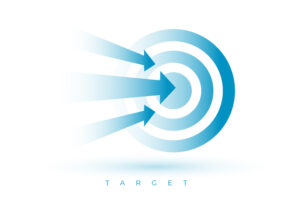5-Minute Read
If you’re a homeowner with a mortgage, should you try to pay it off early? As a financial planner, I’m frequently asked this question. It often leads to some interesting conversations. I frequently gain new insights on approaching this decision, particularly from a psychological perspective.
Of course, there are objective ways to think about this. In fact, I believe most financial planners analyze this area well, showing clients both the pros and cons. However, this goes beyond numbers. It’s an emotionally charged area of personal finance, perhaps fueled by the financial media and TV/radio personalities who take strong positions one way or the other.
In this piece, I’ll share some personal experiences with this decision and lay out some considerations to help you make the right choice for you and your family.
Our Personal Mortgage Story (Brief Version)
Before becoming a financial planner, I lived in Minnesota with my wife Pavi. We had a starter home with a mortgage and decided to make extra principal payments to pay it off as soon as possible. Why? This wasn’t because of some deep analysis. We mainly thought it would make us feel better.
Luckily, I had a high-earning position as an engineer and Pavi had entered the workforce on the banking side. We were able to maximize retirement contributions. However, we had some excess cash flow and needed to decide what to do.
Over the course of a few years, along with some family inheritance dollars, we chose to pay off our mortgage. I distinctly remember that when we made the final payment to clear the debt, I felt no different. Maybe there was a brief satisfaction of reaching a financial goal, but I didn’t have a newfound sense of peace of mind from achieving debt freedom.
Looking back, I believe the reason for my indifference was that we were still far from being financially independent. Perhaps others in my situation would have been ecstatic. In fact, I know people who become happier and less stressed from paying off a mortgage. For me, paying off the mortgage was just one step towards achieving financial freedom.
Fast forward to today. We’re in a different house. We do have a mortgage, but it’s quite manageable. We take extra care to manage our “debt ratio”. That is simply our debt expressed as a percentage of our liquid investments. We can pay our entire debt anytime we want but we have chosen (for now, at least) to keep some debt on our balance sheet.
The Basic Math (Without Math)
There are many sources out there that go into the deep math on the mortgage question. Let me hit just a couple of broad points.
First, the decision is more straightforward if we’re talking about the most standard type of mortgage, which is a fixed-rate mortgage. For example, you buy a home today with a 30-year mortgage and a fixed rate of 6 percent. That interest rate will stay in effect until you sell the home or your term expires, whichever happens first.
When you pay extra principal into a mortgage, you get a guaranteed (after-tax) rate of return equal to the mortgage interest rate. So naturally, if you’re locked into a higher mortgage rate, you get a higher return from paying it off. This applies particularly to newer mortgages issued or refinanced over the last couple of years.
Assess the Opportunity Cost
Before deciding to pay off your mortgage early, assess the opportunity cost. This means considering whether there are alternative uses for your capital that will provide greater benefits in the future or better protect you against risks. Here are a few angles to look at.
Adopt a Savings Policy
Creating a savings policy can be a useful exercise before paying off a mortgage. It involves making a list of how you plan to allocate your discretionary income. Your savings policy should prioritize how you intend to build your emergency cash reserves, fund different investment accounts like HSAs, Roth IRAs, or 401k plans, and pay off any kind of debt.
Once you have considered all your options, you may find that paying off your mortgage is still your preferred choice. If so, a written policy can help you make the right choice with your savings after paying off the mortgage. After all, you should have higher “free cash flow” at that time. However, you may need some tools and strategies to help you make productive use of that cash flow.
Mortgages and Taxes
It’s important to know that depending on where you direct your money, you might be entitled to some tax benefits. For instance, if you can claim itemized tax deductions, mortgage interest on a personal residence is tax deductible.
However, with higher standard deduction limits available today, it might be difficult to benefit from this deduction. Nevertheless, if you pay mortgage interest on a rental property, you can deduct it from your rental income.
The Value of Debt Flexibility
Years back, when we paid off our own mortgage, that was before I had any formal training in financial planning. In later years, I came to appreciate debt solutions that provided more flexibility and that I could use more strategically. I wrote more about this in an earlier piece: The Value of Having Debt Capacity.
There I discussed some of the benefits of lines of credit, such as those based on home equity or your investment portfolio. These types of debt solutions are far more flexible than traditional “amortizing” debt like most mortgages. However, lines of credit are not perfect. In today’s higher interest rate environment, they must be used carefully.
One Benefit of Paying off a Mortgage Early
Despite the warnings against paying off a mortgage early, there’s a valuable lesson to be learned for those who strive to become debt-free and remain that way.
If you opt not to incur debt to maintain your lifestyle, it can compel you to economize and concentrate your spending on the things that genuinely matter to you. It can help you break the habit of using debt as a crutch.
Earlier we wrote about the minimalist approach, where you actively question the things that add value to your life. For some of you, there may be a tie to the mortgage payoff decision.
However, it’s important to remember that life is all about balance. While achieving financial independence is crucial and worth pursuing, you mustn’t forget to enjoy the journey.
Balance Your Objectivity and Values
If you’re considering paying off your mortgage early, crunch the numbers but recognize what matters most to you.
If you have a financial planner, they can assist you in assessing the short-term and long-term benefits of paying off your mortgage early. Since debt can be a sensitive topic, your planner should help you evaluate the decision objectively and logically.
We cannot predict with certainty if paying off your mortgage now will make you financially stronger in the future. However, your planner can help you determine which course of action is more likely to succeed.
If you are highly debt-averse, no logical or historical argument is likely to persuade you to pursue any other option than paying off all debts. If you find a strategy that helps you rest easy at night and still helps you progress towards financial independence, then it may be the right path for you.
If you have comments or questions on this piece, please drop me a line at: [email protected]
References
- https://www.irs.gov/newsroom/irs-provides-tax-inflation-adjustments-for-tax-year-2024
- https://krishnawealth.com/the-value-of-having-debt-capacity/
- https://krishnawealth.com/is-a-dose-of-minimalism-the-cure/
The information on this site is provided “AS IS” and without warranties of any kind either express or implied. To the fullest extent permissible pursuant to applicable laws, Krishna Wealth Planning LLC (referred to as “KWP”) disclaims all warranties, express or implied, including, but not limited to, implied warranties of merchantability, non-infringement, and suitability for a particular purpose.
KWP does not warrant that the information will be free from error. None of the information provided on this website is intended as investment, tax, accounting or legal advice, as an offer or solicitation of an offer to buy or sell, or as an endorsement of any company, security, fund, or other securities or non-securities offering. The information should not be relied upon for purposes of transacting securities or other investments. Your use of the information is at your sole risk. Under no circumstances shall KWP be liable for any direct, indirect, special or consequential damages that result from the use of, or the inability to use, the materials in this site, even if KWP or a KWP authorized representative has been advised of the possibility of such damages.
In no event shall KWP have any liability to you for damages, losses, and causes of action for accessing this site. Information on this website should not be considered a solicitation to buy, an offer to sell, or a recommendation of any security in any jurisdiction where such offer, solicitation, or recommendation would be unlawful or unauthorized.





